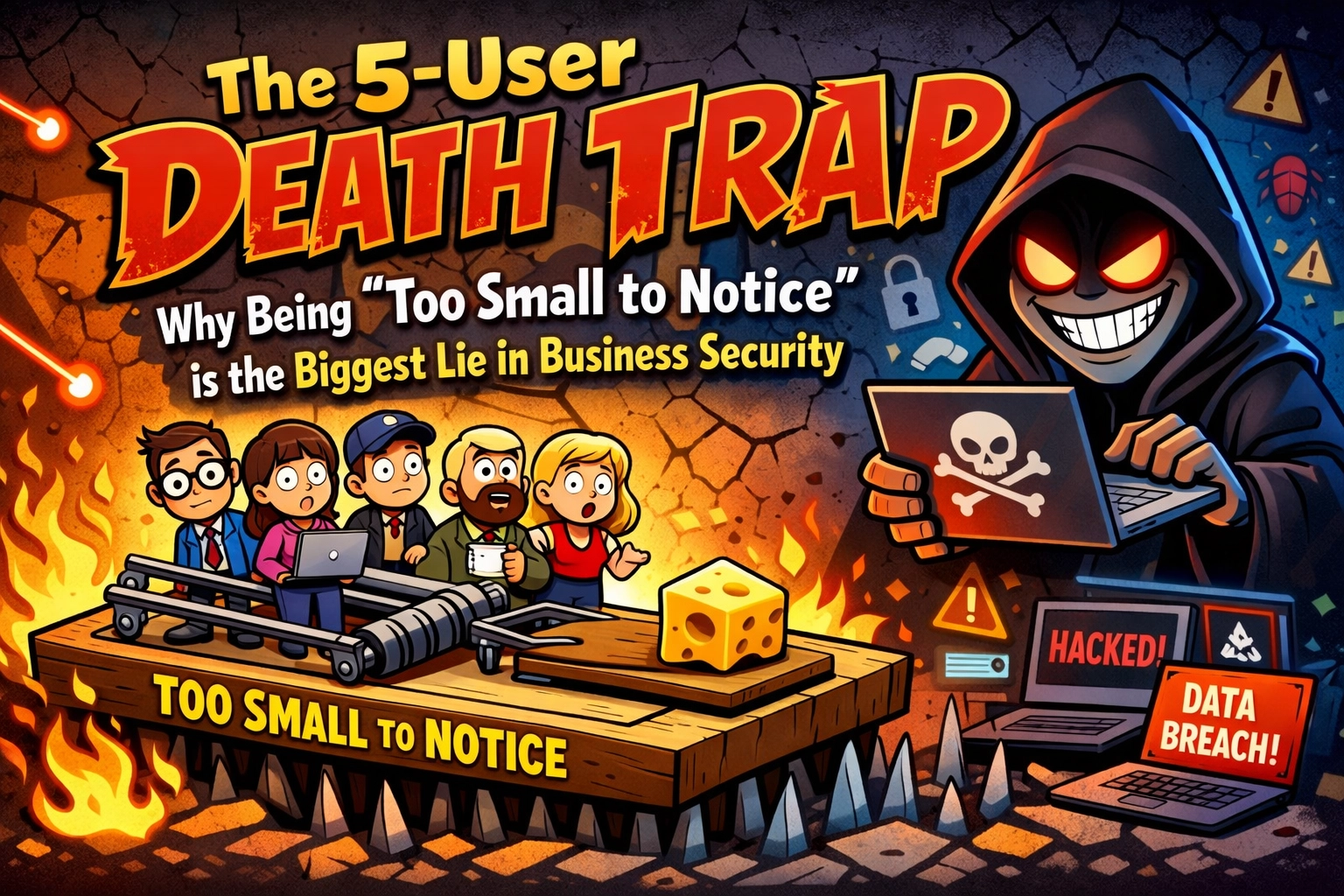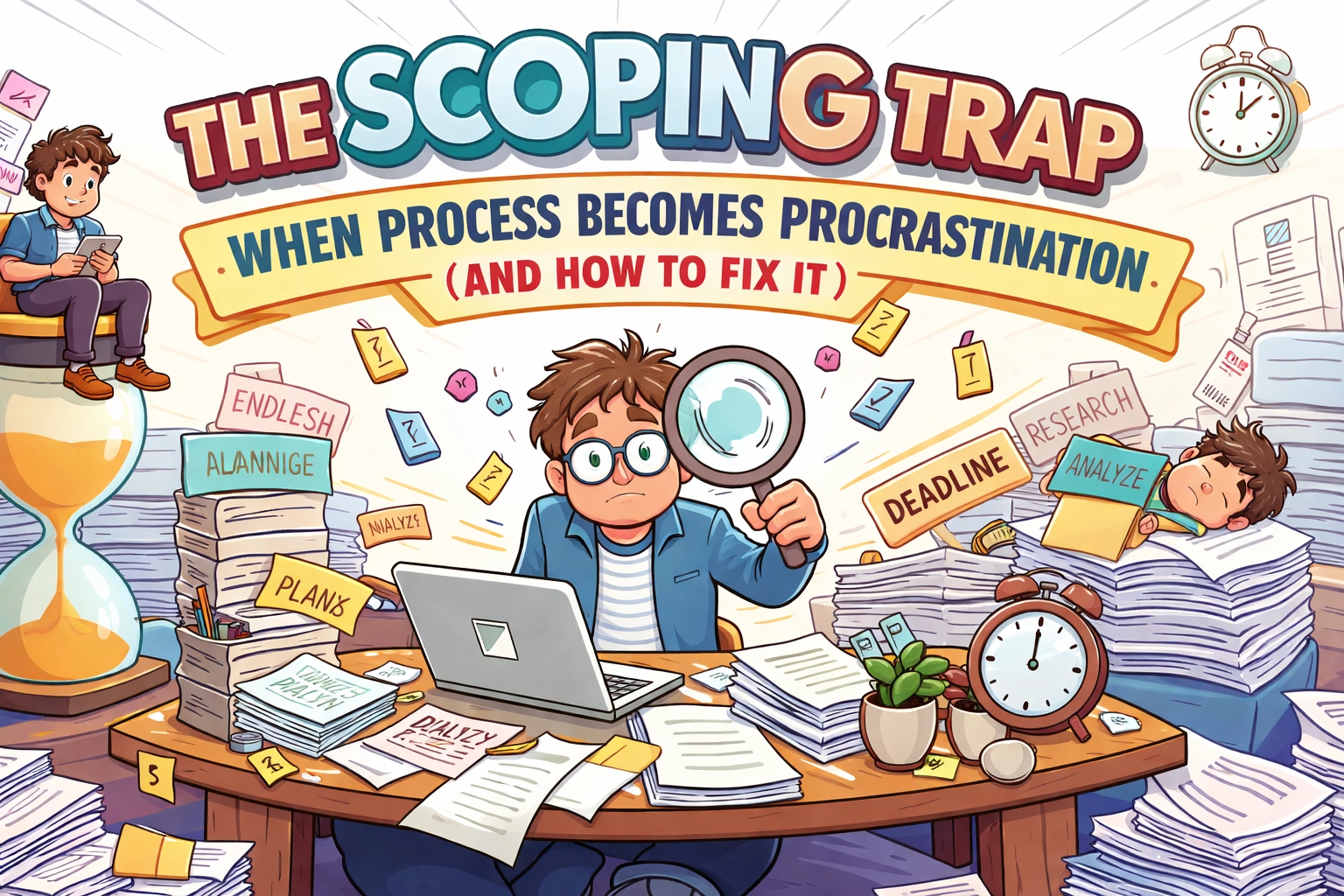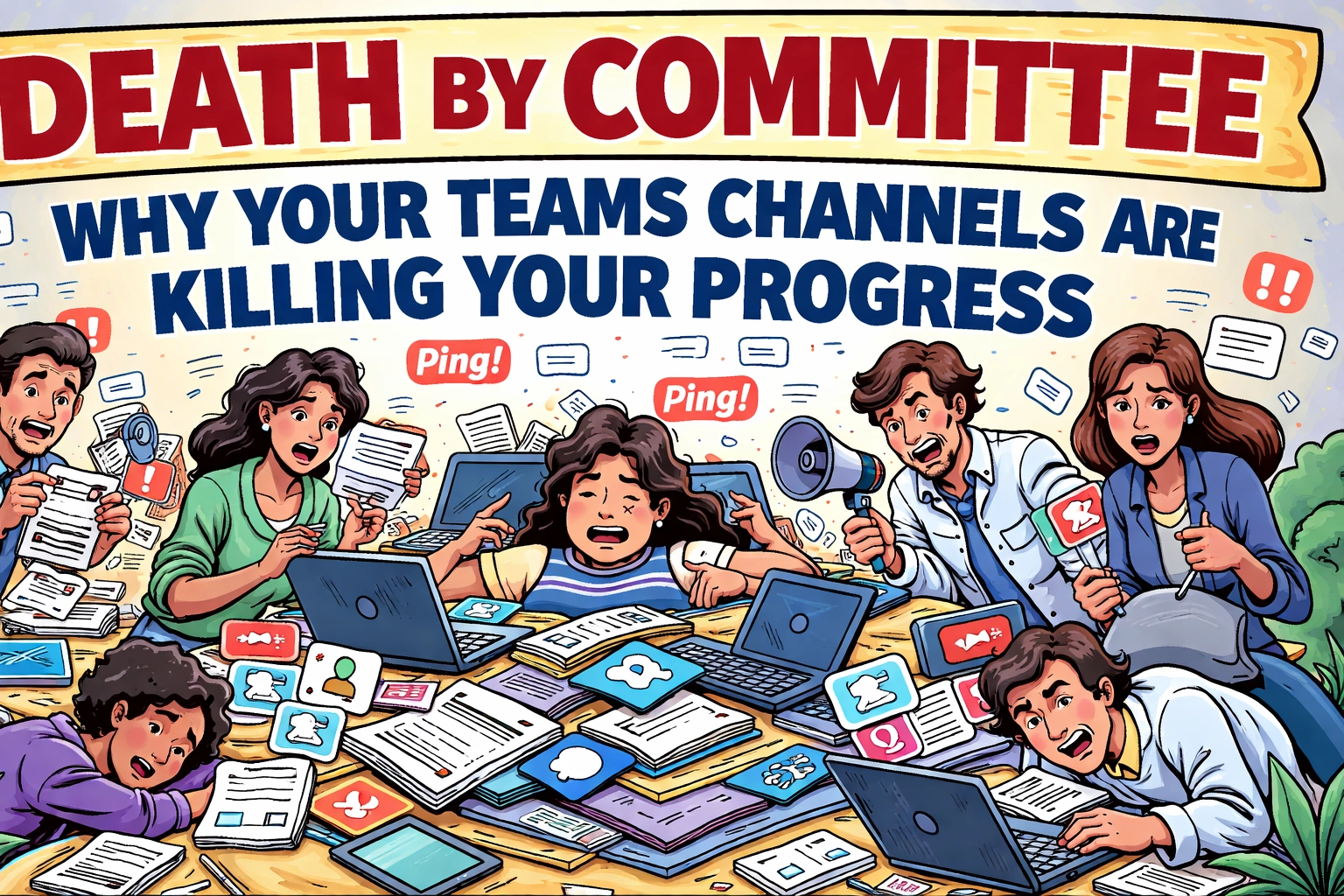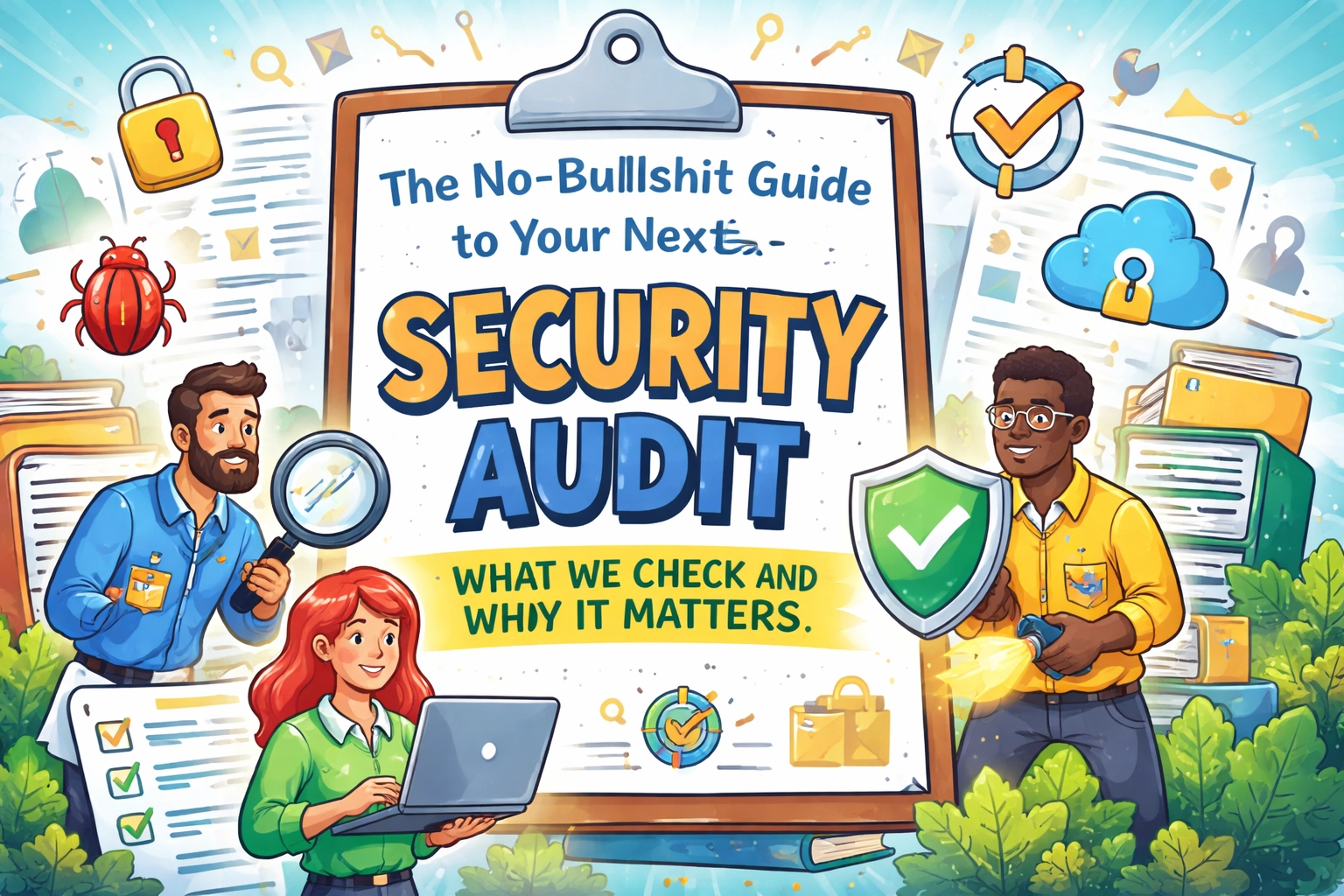The Frustration is Real
Let's just put it out there: working with vendors (and clients) in the IT and cybersecurity space can be maddening. We've all been there—sitting on hold for 45 minutes only to get disconnected, sending three follow-up emails that vanish into the void, or dealing with that client who ignores every security recommendation but is the first to blame you when something goes wrong.
As an MSP that's been in the trenches for years, we at Your Personal Ninja have seen it all. From the vendor who ghosts you after cashing your check to the client who lets invoices age like fine wine while expecting immediate support.
Let's be honest: accountability has become a rare commodity in tech relationships.
The Silent Treatment Isn't a Strategy
Nothing kills productivity (and your will to live) faster than vendors who don't respond. You've implemented their solution, you're having an issue, and suddenly they're harder to reach than a celebrity without a publicist.
"We'll get back to you within 24 hours" often translates to "We'll respond when Mercury is in retrograde and Jupiter aligns with Mars."
The real cost? It's not just your sanity:
- Downtime that could have been prevented
- Security vulnerabilities left unpatched
- Frustrated end-users pointing fingers at you
- The endless hours your team spends trying to troubleshoot issues the vendor should be handling
And for MSPs and IT providers, this means we're often stuck in the middle, trying to explain to clients why their expensive solution isn't working while simultaneously trying to track down a vendor rep who remembers we exist.

Clients: Partners or Adversaries?
On the flip side, we need to talk about client accountability. If you've been in IT for more than a week, you've probably encountered at least one of these scenarios:
- The client who ignores security recommendations, gets breached, then asks, "Why didn't you prevent this?"
- The business that treats invoices as optional suggestions for payment
- The end-user who clicks on every suspicious email despite your security awareness training
- The executive who demands instant support but is "too busy" to implement the solutions you provide
These aren't just minor annoyances—they're fundamental breakdowns in what should be a partnership built on mutual respect and accountability.
The Real Cost of Dodged Responsibility
When accountability goes missing, everyone loses:
For clients:
- Security incidents that could have been prevented
- Extended downtime when problems arise
- Higher costs for emergency fixes vs. preventative maintenance
- Strained relationships with their service providers
For vendors:
- Lost customer loyalty and referrals
- Reputation damage in a field where word-of-mouth matters
- Higher support costs from escalating issues
- The inevitable churn of frustrated customers
For MSPs caught in the middle:
- Endless firefighting instead of proactive service
- Resource drain from chasing payments and responses
- Difficult conversations with clients about third-party issues
- The stress of shouldering blame for things outside their control
At the end of the day, lack of accountability doesn't just damage relationships—it directly impacts security postures, business continuity, and bottom lines.
Why Contracts Aren't Enough
"But we have an SLA!" you might say. Sure, and I have a gym membership, but that doesn't automatically make me fit.
Let's be brutally honest here: contracts are just fancy paperwork that people rarely read thoroughly. There are too many moving parts in cybersecurity relationships, and not everything can be hand-held or spoon-fed.
Contracts and SLAs are important foundations, but they're just the starting point. Real accountability requires:
- Transparent communication about capabilities and limitations (even when it's uncomfortable)
- Realistic expectations on both sides (no, we can't make you "unhackable")
- Regular check-ins rather than just crisis communication
- Acknowledging when things go wrong (because they will)
- Following through on commitments (yes, that includes paying invoices on time)
That said, let's not kid ourselves: when push comes to shove, the contract is the ultimate fallback. So don't act surprised or outraged when those terms you glossed over get enforced. The fine print matters, folks. At Your Personal Ninja, we're straightforward about our agreements because we'd rather have clarity upfront than arguments later.
As we tell our clients, cybersecurity isn't a product you install once—it's an ongoing relationship that requires actual engagement from everyone involved. No contract in the world can replace active participation, but when things go sideways, that paperwork suddenly becomes the most important document in your filing cabinet.

A Word to Vendors: Ghosting Isn't a Business Strategy
If you're a vendor reading this, we need to have a talk. Your technical solution might be revolutionary, but if your support is non-existent, it doesn't matter.
Here's what your partners and customers actually need from you:
- Responsive communication even when the answer isn't what we want to hear
- Transparency about issues instead of pretending everything's fine
- Clear escalation paths when initial support can't resolve an issue
- Follow-through on promises (especially those made during the sales process)
- Ownership of problems rather than pointing fingers elsewhere
The vendors we continue to work with and recommend to our clients aren't necessarily the ones with the most features or the lowest prices—they're the ones who show up when things go sideways.
A Word to Clients: We Can't Help If You Won't Let Us
Now for some tough love for clients. We get it—you hired IT support so you wouldn't have to think about technology. But security and functionality require your participation too.
When you:
- Ignore security recommendations
- Delay critical updates
- Miss scheduled maintenance windows
- Leave invoices unpaid for weeks or months
- Blame your provider for issues caused by non-compliance
…you're not just being a difficult client. You're actively working against your own interests and security.
The most successful client relationships we have at Your Personal Ninja involve businesses that view us as partners, not just vendors they can blame when things go wrong. They understand that their actions (or inactions) directly impact their security posture and system performance.
Building Accountability into Your Relationships
So how do we fix this broken system? Here are some practical steps for building accountability in both directions:
For those working with vendors:
- Document everything. Conversations, promises, timelines—get it in writing.
- Establish clear expectations upfront. What constitutes an acceptable response time? What escalation paths exist?
- Be the client vendors want to help. Pay on time, provide clear information, and recognize their constraints.
- Develop relationships before you need them. Connect with account managers and support teams during calm periods.
- Know when to walk away. Some vendor relationships just aren't salvageable.
For those working with clients:
- Set clear boundaries and expectations. Don't promise what you can't deliver.
- Educate rather than dictate. Help clients understand the "why" behind recommendations.
- Establish consequences for non-compliance that are appropriate and enforceable.
- Document client decisions, especially when they go against your recommendations.
- Celebrate good behavior. Recognize clients who take security seriously and maintain their end of the partnership.

It's Not Just Business—It's Security
In cybersecurity, the stakes of these accountability failures go beyond business frustrations. When vendors don't respond to critical vulnerability reports or clients ignore security recommendations, real risk is introduced.
Consider the major supply chain attacks we've seen in recent years. Many began with a breakdown in vendor accountability—security warnings ignored, patches delayed, or transparency lacking about internal processes.
Similarly, many ransomware incidents that devastate businesses begin with basic security measures that were recommended but ignored, or critical updates that were deferred one too many times.
At Your Personal Ninja, we've seen how devastating these breakdowns can be. That's why we've built our business model around shared accountability and transparent partnerships. We can't force vendors to be responsive, but we can choose which ones we work with. We can't force clients to follow security best practices, but we can clearly document risks and recommendations.
The Path Forward: True Partnership
The solution to the accountability crisis isn't more finger-pointing—it's recognizing that security and IT management are team sports. Everyone has a role to play:
- Vendors need to be present, transparent, and responsive
- Service providers need to be honest, thorough, and persistent
- Clients need to be engaged, responsive, and willing to invest appropriately
When each party fulfills their responsibilities, magic happens. Systems run smoothly, security incidents decrease, and everyone can focus on using technology to drive business forward rather than constantly putting out fires.
Conclusion: Choose Your Partners Wisely
At the end of the day, both vendors and clients have choices. Vendors can choose which clients they prioritize. Clients can choose which service providers they trust. MSPs can choose which vendors they partner with.
The best relationships in this industry aren't built on contracts alone—they're built on mutual respect, clear communication, and shared commitment to success.
So the next time you're evaluating a vendor relationship or client partnership, look beyond the features and price. Ask the tough questions about accountability and responsibility. Because when things inevitably go wrong (and they will), those are the factors that will determine whether you have a minor hiccup or a major disaster on your hands.
And if you're looking for an IT partner that believes in mutual accountability and transparent communication, we should talk. Because your business deserves better than being ghosted when you need help the most.





